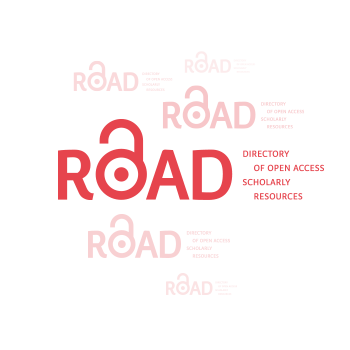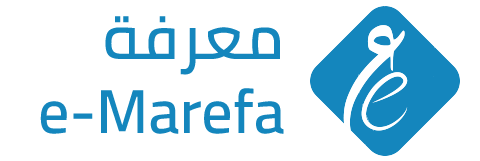The Impact of Using Teams on The Academic Self-Concept of Seventh-Grade Students in The South Nablus Directorate
DOI:
https://doi.org/10.59994/pau.2025.SI.247Keywords:
Microsoft Teams Platform, Academic Self-Concept, Seventh GradeAbstract
The study aimed to investigate the effect of using the Microsoft Teams platform on the academic self-concept of seventh-grade students in the Directorate of South Nablus. To achieve the purpose of the study, the researcher developed a scale to measure academic self-concept, which consisted of 30 items. The validity and reliability of the scale were verified using appropriate methods. The researcher adopted the experimental approach with a quasi-experimental design. The study population consisted of seventh-grade students for the academic year 2024–2025 in the Directorate of South Nablus, and the sample included 70 students divided into two groups: a control group of 35 students who were taught using traditional methods, and an experimental group of 35 students who were taught using the Microsoft Teams platform. The results of the study revealed a statistically significant difference at the significance level (α ≤ 0.05) between the mean scores of the two groups (experimental and control), in favor of the experimental group. In light of these results, the researcher recommended integrating interactive activities and continuous assessments through the platform, as they play a vital role in enhancing students’ motivation and their sense of competence and academic achievement. The originality of the study lies in exploring the impact of using the Microsoft Teams platform on the academic self-concept of seventh-grade students, as it is a contemporary topic that connects e-learning with the psychological and academic dimensions of students within the Palestinian educational context.
Downloads
References
المراجع العربية:
أبو زيد، هيثم. (2005). أثر برنامج تدريبي في تنمية الدافعية للإنجاز الدراسي، ومفهوم الذات الأكاديمي لدى الأطفال ذوي صعوبات التعلم. (أطروحة دكتوراه غير منشورة)، جامعة عمّان العربية، الأردن.
بركات، زياد. (2008). علاقة مفهوم الذات بمستوى الطموح لدى طلبة جامعة القدس المفتوحة وعلاقتهما ببعض المتغيرات. (رسالة ماجستير)، جامعة القدس المفتوحة، فلسطين.
الجربوع، عبد الرحمن. (2008). أثر تفاعل نمطين للتغذية الراجعة ومستوى الذكاء على مفهوم الذات الأكاديمي لدى عينة من طلاب المرحلة المتوسطة. (رسالة ماجستير غير منشورة)، جامعة الملك سعود، المملكة العربية السعودية.
الحافظ، محمود؛ أمين، أحمد. (2012). المختبر الافتراضي لتجارب الفيزياء والكيمياء وأثره في تنمية قوة الملاحظة لطلاب المرحلة المتوسطة وتحصيلهم المعرفي. المجلة التربوية الدولية المتخصصة، 1(8)، 459-478.
دار إبراهيم، ياسمين. (2014). أثر استخدام المختبر الافتراضي لتجارب العلوم في تنمية عمليات العلم واكتساب المفاهيم لدى طالبات الصف الخامس في فلسطين. (رسالة ماجستير غير منشورة)، جامعة النجاح الوطنية، فلسطين.
راجح، أحمد. (1985). أصول علم النفس. القاهرة، دار المعارف للنشر.
الريموني، هيثم. (2008). أثر البرامج التدريبية لذوي صعوبات التعلم في الإنجاز الدراسي ومفهوم الذات. الأردن، دار الحامد للنشر والتوزيع.
سليمان، سناء. (2005). تحسين مفهوم الذات- تنمية الوعي بالذات والنجاح في شتى مجالات الحياة "الجزء السابع". مصر، عالم الكتب للنشر.
سمحان، منال. (2021). متطلبات التحول نحو التعلم المدمج بالتعليم قبل الجامعي لمواجهة تحديات جائحة كورونا. مجلة العلوم التربوية، 29(1)، 1-77.
الظاهر، قحطان. (2004). مفهوم الذات بين النظرية والتطبيق. الأردن، دار وائل للنشر والتوزيع.
العجلان، عبد الرحمن. (30 أكتوبر، 2020). المتطلبات اللازم توافرها لتطبيق التعليم المدمج في المرحلة الثانوية بالمملكة العربية السعودية من وجهة نظر المعلمين. ورقة مقدمة للمؤتمر الدولي (الافتراضي) لمستقبل التعليم الرقمي في الوطن العربي. المملكة العربية السعودية.
العجمي، سارة؛ العرفج، عبير. (2018). معوقات تطبيق التعليم المدمج في المرحلة الثانوية بدولة الكويت من وجهة نظر المعلمات. المجلة التربوية الدولية المتخصصة، 7(3)، 56-55.
عمران، محمد. (2015). أثر استخدام نموذج أدي وشاير في تعديل التصورات البديلة للمفاهيم العلمية لدى طلاب الصف التاسع الأساسي. (رسالة ماجستير غير منشورة)، جامعة الأزهر، فلسطين.
فرج، عبد اللطيف. (2005). توظيف الانترنت في التعليم ومناهجه. المجلة التربوية، 19(4)، 110-150.
المواضية، رضا؛ الزعبي، طلال. (2020). اتجاهات أعضاء هيئة التدريس في الجامعات الأردنية نحو التعليم المدمج والصعوبات التي تواجههم في تطبيقه. مجلة الزرقاء للبحوث والدراسات الإنسانية، 20(1)، 38-48.
هياجنة، أمجد؛ الشكيري، فتحية. (2013). فاعلية برنامج إرشاد جمعي في تنمية مفهوم الذات الأكاديمي لذوي صعوبات التعلم الأكاديمية. مجلة الجامعة الإسلامية للدراسات التربوية والنفسية، 21(1)، 189-225.
المراجع العربية بنظام الرومنة:
Abw Zyd, Hythm. (2005). athr brnamj tdryby fy tnmyh aldaf'eyh llenjaz aldrasy, wmfhwm aldat alakadymy lda alatfal dwy s'ewbat alt'elm. (atrwhh dktwrah ghyr mnshwrh), jam'eh 'eman al'erbyh, alardn.
Brkat, Zyad. (2008). 'elaqh mfhwm aldat bmstwa altmwh lda tlbh jam'eh alqds almftwhh w'elaqthma bb'ed almtghyrat. (rsalh majstyr), jam'eh alqds almftwhh, flstyn.
Aljrbw'e, 'Ebd Alrhmn. (2008). athr tfa'el nmtyn lltghdyh alraj'eh wmstwa aldka' 'ela mfhwm aldat alakadymy lda 'eynh mn tlab almrhlh almtwsth. (rsalh majstyr ghyr mnshwrh), jam'eh almlk s'ewd, almmlkh al'erbyh als'ewdyh.
Alhafz, Mhmwd؛ Amyn, Ahmd. (2012). almkhtbr alaftrady ltjarb alfyzya' walkymya' wathrh fy tnmyh qwh almlahzh ltlab almrhlh almtwsth wthsylhm alm'erfy. almjlh altrbwyh aldwlyh almtkhssh, 1(8), 459-478.
Dar Ebrahym, Yasmyn. (2014). athr astkhdam almkhtbr alaftrady ltjarb al'elwm fy tnmyh 'emlyat al'elm waktsab almfahym lda talbat alsf alkhams fy flstyn. (rsalh majstyr ghyr mnshwrh), jam'eh alnjah alwtnyh, flstyn.
Rajh, Ahmd. (1985). aswl 'elm alnfs. alqahrh, dar alm'earf llnshr.
Alrymwny, Hythm. (2008). athr albramj altdrybyh ldwy s'ewbat alt'elm fy alenjaz aldrasy wmfhwm aldat. alardn, dar alhamd llnshr waltwzy'e.
Slyman, Sna'. (2005). thsyn mfhwm aldat- tnmyh alw'ey baldat walnjah fy shta mjalat alhyah "aljz' alsab'e". msr, 'ealm alktb llnshr.
Smhan, Mnal. (2021). mttlbat althwl nhw alt'elm almdmj balt'elym qbl aljam'ey lmwajhh thdyat ja'ehh kwrwna. mjlh al'elwm altrbwyh, 29(1), 1-77.
Alzahr, Qhtan. (2004). mfhwm aldat byn alnzryh walttbyq. alardn, dar wa'el llnshr waltwzy'e.
Al'ejlan, 'Ebd Alrhmn. (30 aktwbr, 2020). almttlbat allazm twafrha lttbyq alt'elym almdmj fy almrhlh althanwyh balmmlkh al'erbyh als'ewdyh mn wjhh nzr alm'elmyn. wrqh mqdmh llm'etmr aldwly (alaftrady) lmstqbl alt'elym alrqmy fy alwtn al'erby. almmlkh al'erbyh als'ewdyh.
Al'ejmy, Sarh؛ Al'erfj, 'Ebyr. (2018). m'ewqat ttbyq alt'elym almdmj fy almrhlh althanwyh bdwlh alkwyt mn wjhh nzr alm'elmat. almjlh altrbwyh aldwlyh almtkhssh, 7(3), 56-55.
'Emran, Mhmd. (2015). athr astkhdam nmwdj ady wshayr fy t'edyl altswrat albdylh llmfahym al'elmyh lda tlab alsf altas'e alasasy. (rsalh majstyr ghyr mnshwrh), jam'eh alazhr, flstyn.
Frj, 'Ebd Alltyf. (2005). twzyf alantrnt fy alt'elym wmnahjh. almjlh altrbwyh, 19(4), 110-150.
Almwadyh, Rda؛ Alz'eby, Tlal. (2020). atjahat a'eda' hy'eh altdrys fy aljam'eat alardnyh nhw alt'elym almdmj wals'ewbat alty twajhhm fy ttbyqh. mjlh alzrqa' llbhwth waldrasat alensanyh, 20(1), 38-48.
Hyajnh, Amjd؛ Alshkyry, Fthyh. (2013). fa'elyh brnamj ershad jm'ey fy tnmyh mfhwm aldat alakadymy ldwy s'ewbat alt'elm alakadymyh. mjlh aljam'eh aleslamyh lldrasat altrbwyh walnfsyh, 21(1), 189-225.
المراجع الأجنبية:
Areepattamannil, S., & Freeman, J. G. (2008). Academic achievement, academic self-concept, and academic motivation of immigrant adolescents in the greater Toronto area secondary schools. Journal of Advanced academics, 19(4), 700-743.
Iivari, N., Sharma, S., & Ventä-Olkkonen, L. (2020). Digital transformation of everyday life–How COVID-19 pandemic transformed the basic education of the young generation and why information management research should care?. International journal of information management, 55, 102183.
Jung, S., Sainato, D. M., & Davis, C. A. (2008). Using high-probability request sequences to increase social interactions in young children with autism. Journal of Early Intervention, 30(3), 163-187.
Matovu, M. (2014). A Structural Equation Modelling of the Academic Self-Concept Scale. International Electronic Journal of Elementary Education, 6 (2), 185-198.
Rosenberg, M. (1956). 1979Conceiving the Self. New York: Basic.
Shavelson, R. J., Hubner, J. J., & Stanton, G. C. (1976). Self-concept: Validation of construct interpretations. Review of educational research, 46(3), 407-441.
Song, I. S., & Hattie, J. (1985). Relationships between self-concept and achievement. Journal of Research in Personality, 19(4), 365-372.
Visi, N. (2015). The Relationship between Students' Academic Self-Concept, Motivation and Academic Achievement. Journal of Applied Environmental and Biological Sciences, 5(4),270-276.
Downloads
Published
How to Cite
Issue
Section
License
Copyright (c) 2025 Journal of Palestine Ahliya University for Research and Studies

This work is licensed under a Creative Commons Attribution 4.0 International License.
مجلة جامعة فلسطين الاهلية للبحوث والدراسات تعتمد رخصة نَسب المُصنَّف 4.0 دولي (CC BY 4.0)











